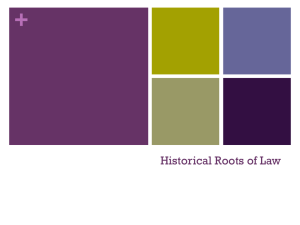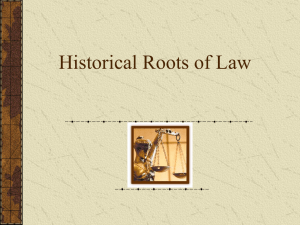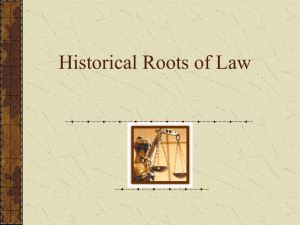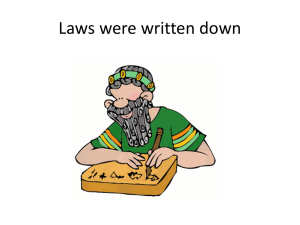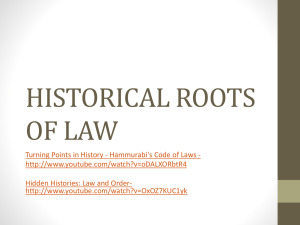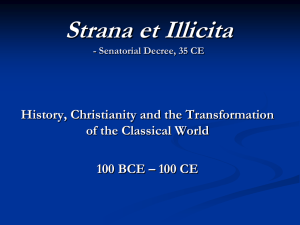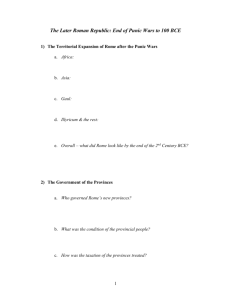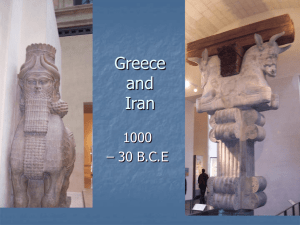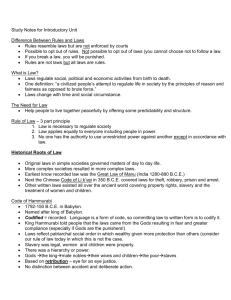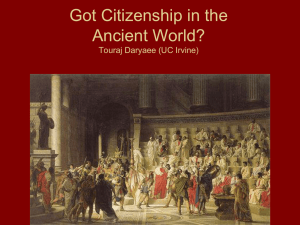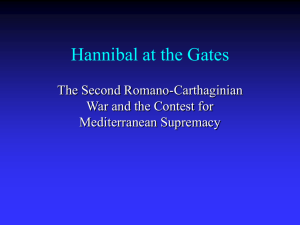Historical_Roots_of_Law.ppt
advertisement
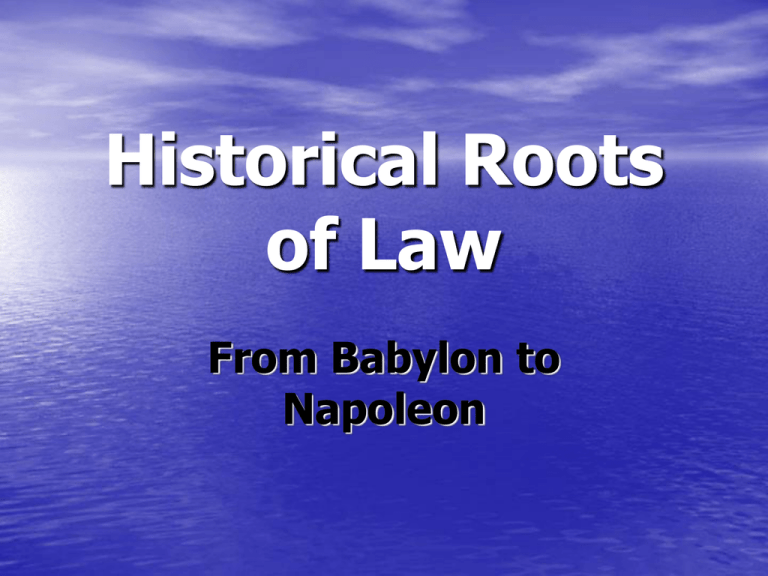
Historical Roots of Law From Babylon to Napoleon Law and Civilizations • Laws in the form of community enforced rules have existed since people began to interact • Most were based on common sense and passed on by word of mouth • As populations grew and laws became more complex, the need to record laws in writing increased Code of Hammurabi (1792 – 1750 BCE) • One of the earliest known sets of recorded laws, written by King Hammurabi of Babylon • He codified, or recorded, the rules and penalties for every aspect of Babylonian life Code of Hammurabi (1792 – 1750 BCE) • Laws reflected a patriarchal, male dominated society • Higher members of society would be punished, however women or slaves would actually receive retribution • No distinction was made between an accident and a deliberate action Code of Hammurabi (1792 – 1750 BCE) • Many of the laws were based on retribution – an eye for an eye type of justice • Other laws focused on restitution, meaning a compensation payment would be made to the victim Mosaic Law (c. 1250 BCE) • One of the greatest influence of modern law in Canada is biblical law • Also know as Hebrew law or Mosaic Law these laws are often referred to as the Ten Commandments • Recorded in the Book of Exodus Mosaic Law (c. 1250 BCE) • Basic principles are similar to the Code of Hammurabi yet the laws had evolved • Law was more concerned with punishing deliberate actions instead of accidental acts of harm • Punishment focused on the offender and not someone of lesser status Greek Law (c. 400 BCE) • First form of democracy was born in Greece • Greek law promoted citizen involvement in running the country • Voting and Jury Duty were both major responsibilities for citizens • Sentencing was also democratic Roman Law (c. 450 BCE – 100 CE) There were two basic principles to Roman Law: 1) The Law must be recorded 1) Justice could not be left of the hands of judges alone to interpret Roman Law (c. 450 BCE – 100 CE) • Roman Laws were codified and could be revised when necessary • The Twelve Tablets dictated the law of England and is considered the foundation for modern law • The practice of having a legal advisor who specializes in law first occurred Roman Law (c. 450 BCE – 100 CE) • The Twelve Tablets Promoted: – Public Prosecution of crimes – A system of victim compensation – Protected lower classes from the ruling class • Women however were not mentioned because they were not considered persons Justinian’s Code (527 - 565 CE) • Byzantine Emperor Justinian I • • • commissioned the clarification and organization of Roman law A new body of law was completed known as Justinian’s Code It formed the basis for civil law The word justice is derived from his name The Napoleonic Code (1804) • The Napoleonic Code’s non• • technical style made laws accessible to the public Also known as the French Civil Code Regulated civil matters such as property, wills, contracts, and family law Key Definitions Codified – Laws that are arranged and recorded systematically Retribution – Justice based on vengeance and punishment Restitution – Payment made by the offender to the victim of a crime
